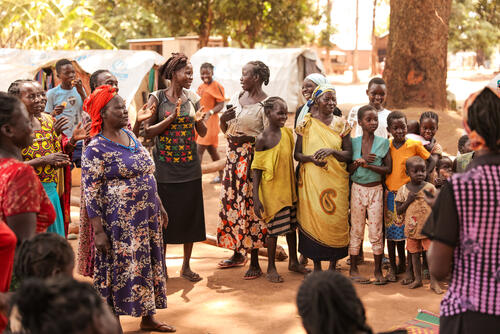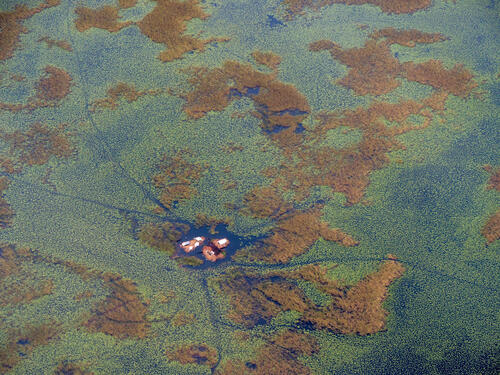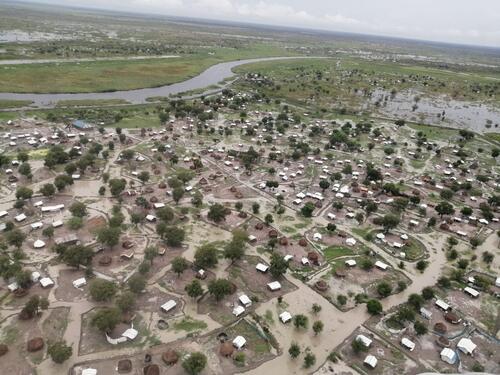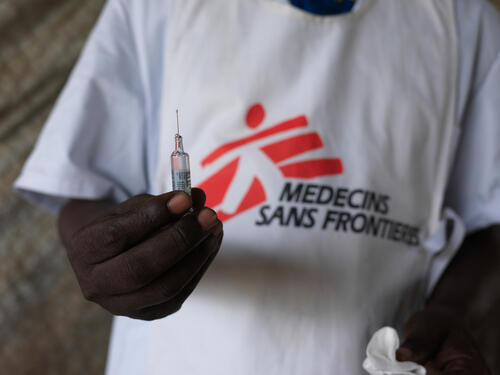When Médecins Sans Frontières (MSF) launched an emergency intervention in Tambura, South Sudan, in December 2021, the level of devastation was clear – 80,000 people had been displaced, a significant proportion of the community had been brutally killed, and the looting and destruction of the only hospital meant that people did not have access to medical care.
The conflict in Tambura, which largely ran along ethnic lines, began in early 2021 but escalated significantly between June to September. It decimated the population.
A retrospective mortality survey carried out by MSF in March 2022 found an average of 5.5 deaths per 10,000 people each day over a period of nine months."Retrospective Mortality, Nutrition, and Measles vaccination coverage survey in the MSF catchment area in Tambura and Source Yubu, South Sudan" MSF, April, 2022. Many people living in displacement camps still have not found their loved ones, while others know their family members were killed, but feel too unsafe to retrieve their bodies.
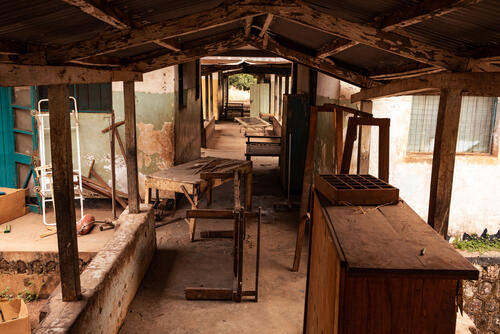
Due to the destruction of the hospital, lives were also lost due to lack of medical care. Mothers had no safe spaces to deliver their babies, and children had nowhere to receive vaccinations against infectious and often deadly diseases. As part of MSF’s emergency intervention in Tambura, our team began providing this essential healthcare.
A weekly cargo plane brought supplies for the community and MSF also provided clean water and began rebuilding and refurbishing the hospital in Tambura. However, after all the trauma the community had experienced, one of the biggest needs was mental health services.
Living in fear, experiencing and witnessing extreme violence, and huge uncertainty for the future are factors that continue to prey on the minds of those displaced in and around Tambura. Without an appropriate outlet and space to process traumatic experiences, the symptoms can deepen, become worse, and in some cases manifest themselves in physical symptoms.
Without really discussing their experiences, without coming to terms with what happened to them, this can provoke a physical response from the body. In psychological terms, this is like having an open wound that goes untreated.Ariadna Alexandra Pérez Gudiño, MSF’s Mental Health Activity Manager.
“The most common symptoms we see in people are stress, sadness and grief, as well as anxiety about their future and returning home – as some people had their houses robbed and burned, so now have nothing,” says Ariadna Alexandra Pérez Gudiño, MSF’s Mental Health Activity Manager.
“Without really discussing their experiences, without coming to terms with what happened to them, this can provoke a physical response from the body,” she says. “In psychological terms, this is like having an open wound that goes untreated.”
To address the mental health needs of people in Tambura, MSF decided to provide comprehensive community-based mental health services. Working with a team of four counsellors from Tambura, Ariadna began by discussing expectations with her team.
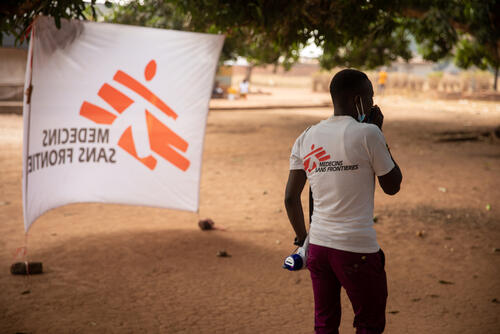
There is a collective experience here – everyone has been displaced, they have witnessed violence,” Ariadna says. “We are not going to change their experiences and the reality they are living in – our objective is to help people process what’s happened, and support them with coping mechanisms to help reduce their suffering.”
The mental health team began working in and around the displacement camps to discuss the mental health problems many people were experiencing, to normalise speaking about them, and provide outlets for those in need of support. This included one-to-one counselling sessions, referral pathways for those in need of further treatment or medication, and group psychosocial health sessions.
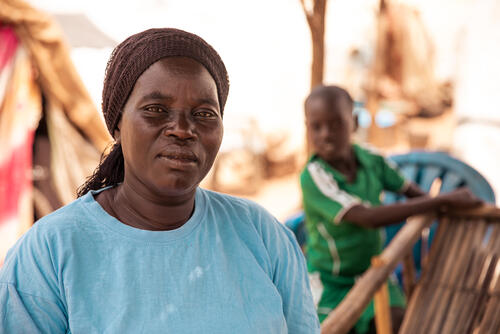
“Six of my family members were killed in this conflict, including my husband, son, brother and nephew. After I heard the news, I wasn’t in my right mind – I lost sense of who I am,” says Severna Joseph, who is one of the many people in the displaced persons camp in Tambura who have lost loved ones.
“I went to MSF for some counselling sessions and after a while I started to find my feet again. The mental health counselling with MSF has been a big help,” she says. “I am still struggling and things are not perfect, but now I am beginning to understand what happened to me, I am beginning to work through these things, and for the first time in a while, I now have some hope for the future.”
For Mark Moses Tagiapaite, this is the second time he has been displaced due to conflict – once as a child during the war for independence, and now again from the intercommunal violence in Tambura. Mark, like thousands of other people in Tambura, fled with his wife and children, leaving everything behind.
We made it here, but many more didn’t. A lot of people died in this conflict; innocent people died for no reason. This conflict has destroyed many things – the hospital, healthcare centres, and schools… this conflict destroyed Tambura.Mark Moses Tagiapaite, MSF health promoter.
“It was 1 July 2021 when we fled to the camp – it was just too dangerous for us to stay,” he says. “We made it here, but many more didn’t. A lot of people died in this conflict; innocent people died for no reason. This conflict has destroyed many things – the hospital, healthcare centres, and schools… this conflict destroyed Tambura.”
Mark recognises the psychological burden that comes with having little certainty or agency over the future and having no home to return to. Despite facing his own challenges, Mark is working as an MSF Health Promoter to support others in the camp in Tambura; sharing information on available health services, referral pathways, preventive measures to stop people getting sick and coordinating activities like the measles vaccination campaign, which took place in March 2022.
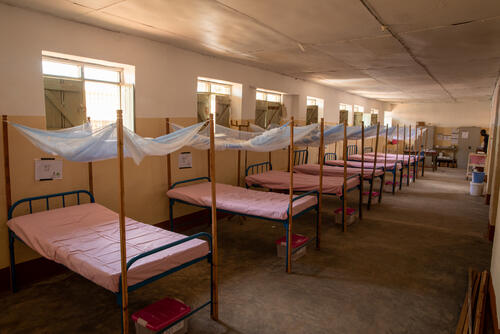
The psychosocial group sessions ran in the camps by MSF included activities like making bracelets, drawing, and singing and dancing. The team also encouraged people to maintain social connections that many of them had already developed, such as playing football or chatting with friends over coffee or tea.
When people are confined to heavily populated displacement camps, psychosocial activities like these can be a lifeline, providing a way of relieving stress and grief and helping people to collectively process trauma.
In conflict-torn South Sudan people continue to live through the vast and catastrophic consequences of violence, from death to long-term lifechanging injuries and post-traumatic stress disorder; destroyed livelihoods, infrastructure, and healthcare systems; as well as being uprooted and forced to leave everything behind.
Between January to July 2022, MSF conducted more than 11,500 individual and group mental health consultations in seven projects in different parts of the country.
With improvements in the humanitarian situation, the rehabilitation of the hospital and other health structures, and healthcare providers having returned to Tambura, MSF handed over our activities June 2022. We ensured referrals of critically ill patients and donated an ambulance to the hospital.
We continue to monitor the situation in Western Equatoria State and remain prepared to respond if conditions deteriorate and emergency needs arise. We recently started an emergency intervention in Magwi county in Eastern Equatoria State where fighting escalated earlier this year, displacing tens of thousands of people. Our team integrated mental healthcare and psychosocial support in our healthcare services, and ensured access to clean, safe and adequate water and sanitation for over 100,000 people.



